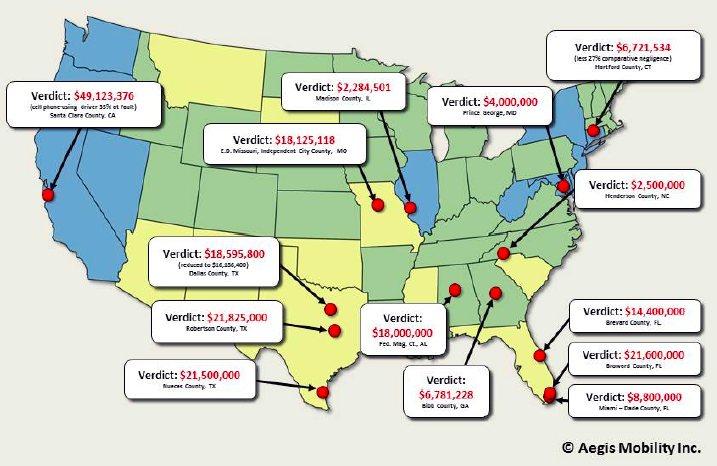ENSURE PILOTS ARE IN COMPLIANCE WITH REGULATIONS
Pilots will have several obligations in regard to the drone to maintain legal compliance. For example, they must perform all of the following:
- Upon request, grant the FAA access to the drone itself along with any associated documents or records.
- Report to the FAA within 10 days of any drone-related accident resulting in serious injury, loss of consciousness or property damage of at least $500.
- Conduct a preflight inspection to ensure the safety of operating the drone.
- Make sure the drone is compliant with existing registration requirements.
These requirements only may be overlooked in the event of an in-flight emergency.
MAKE SURE EQUIPMENT IS OPERATED WITHIN LEGAL PARAMETERS
Along with regulations for certifying drone pilots, the new FAA regulations also set rules regarding the use of drones themselves. For example, the maximum allowable weight for a drone is 55 pounds, and they cannot be operated at a speed greater than 100 mph. Although a camera may be used on the device, the drone must remain within the actual line of sight of the pilot at all times it is in the air. There can only be one remote pilot per drone at a time, and, generally, pilots must operate the drone from a stationary location (operating a drone from moving aircraft is prohibited and operating one from a moving vehicle is only allowed if the area of operation is sparsely populated).
Additional restrictions include:
- A drone cannot be flown over people who aren’t directly involved in the operation, nor under a covered structure, nor inside a covered stationary vehicle.
- It can only be flown during the day.
- Drones must yield right of way to other aircraft.
- The maximum altitude for a drone is 400 feet off the ground or 400 feet from a structure.
- Minimum weather visibility of 3 miles is required.
- Drones cannot carry hazardous materials.
BE AWARE OF AND HONOR CITIZENS’ PRIVACY RIGHTS
Although the jury is still out about how drones will affect privacy rights on the national scale (the new FAA regulations do not set any rules with regard to privacy, though the FAA has issued recommended privacy guidelines), some states, such as North Carolina, have already put in place several regulations to protect citizens’ privacy. In North Carolina, no one is allowed to use drones for surveillance on persons or property without permission of the person or owner, respectively. North Carolina also requires users must receive a person’s consent before photographing them with a drone with a commercial purpose (unless the user is a newsgathering organization). Persons violating these regulations are subject to fines of up to $5,000 per violation, as well as attorney fees.
Read information about your state’s specific rules relating to drones.
DON’T BREAK THE MORE STRINGENT STATE LAWS
North Carolina also has placed additional restrictions on drone use though some of these are unlikely to affect con- tractors who are using drones for commercial purposes. Specifically, a drone cannot be launched or recovered from any public or private property without permission from the landowner; drones cannot be weaponized in any way; and drones cannot be used to fish, hunt or interfere with the lawful taking of wildlife.
North Carolina has set forth a “knowledge test” that commercial drone operators must pass to operate drones, but the state has not yet formulated or implemented the test, so practi- cally speaking this law is not in effect yet. However, it will be soon, and at that point contractors must make sure to have their drone operators comply. (Check your state to determine whether it has similar restrictions.)
Although drones have opened the door to a world of opportunities, they have also created the potential for more legal battles affecting businesses across the country. For construction companies to make full use of this new technology, they must be up to date on developments in both of these areas. Contractors considering using drones should contact an attorney with any questions.




I had no idea that you had to be a certified pilot to operate a drone. I have a really good friend who flies drones in competitions. I will make sure to pass this information on to him so that we can keep everyone safe. Thanks for the info!